

News | 12.11.2024: Master's internship grants; if you are proposing an internship (at Master 2 level) on digital collaboration - and have already identified a candidate - we can finance 6-month internship grants.
News | 29.10.2024: The annual eNSEMBLE Research Programme Day will be held on 20 January 2025 at Cité Internationale Universitaire de Paris (Paris 14). It will be followed by the Winter School (21-22 January), reserved for doctoral students and their supervisors. Programme and Registration (you can use your SciencesConf or HAL login to connect, or create a local account. This will enable us to send you programme updates and practical information to help you organise your day(s)).
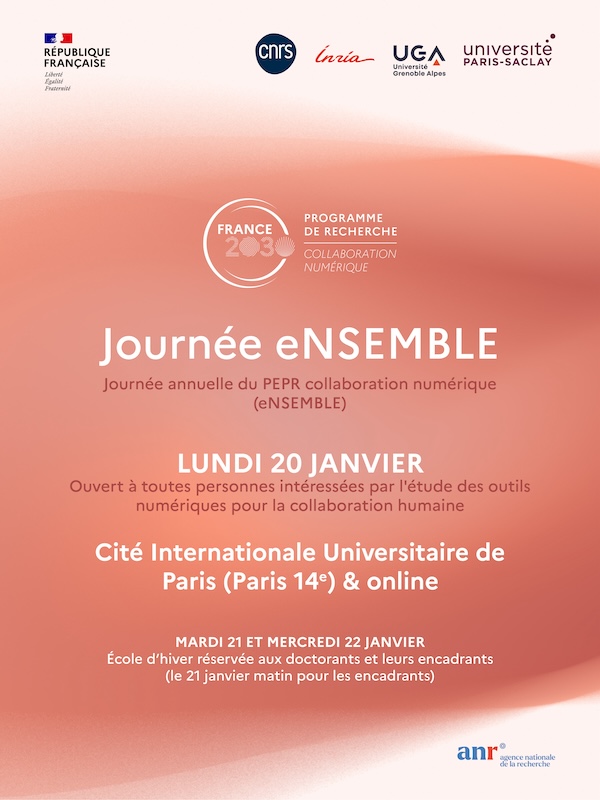
News | 16.10.2024: Call for grants to include a PhD thesis in the PEPR eNSEMBLE programme. If you are preparing a PhD thesis focused on digital collaboration (1st year or beginning of 2nd year), but are not a member of the PEPR eNSEMBLE, you can apply to have your doctoral thesis included in the eNSEMBLE community.
News | 09.10.2024: Only a few days left to register for the workshop of the Targeted Project 3 - MATCHING on collaboration between humans and intelligent systems!
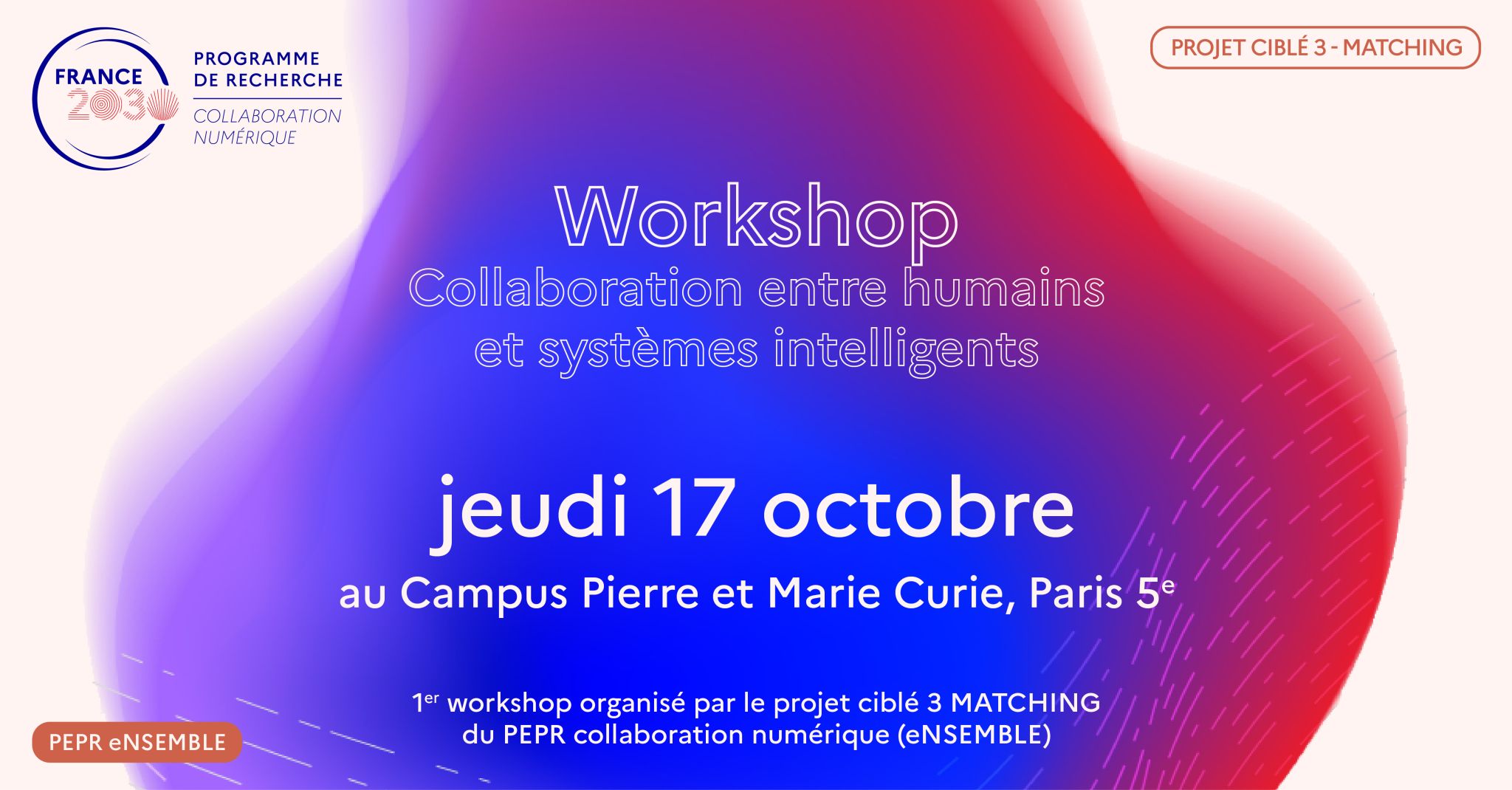
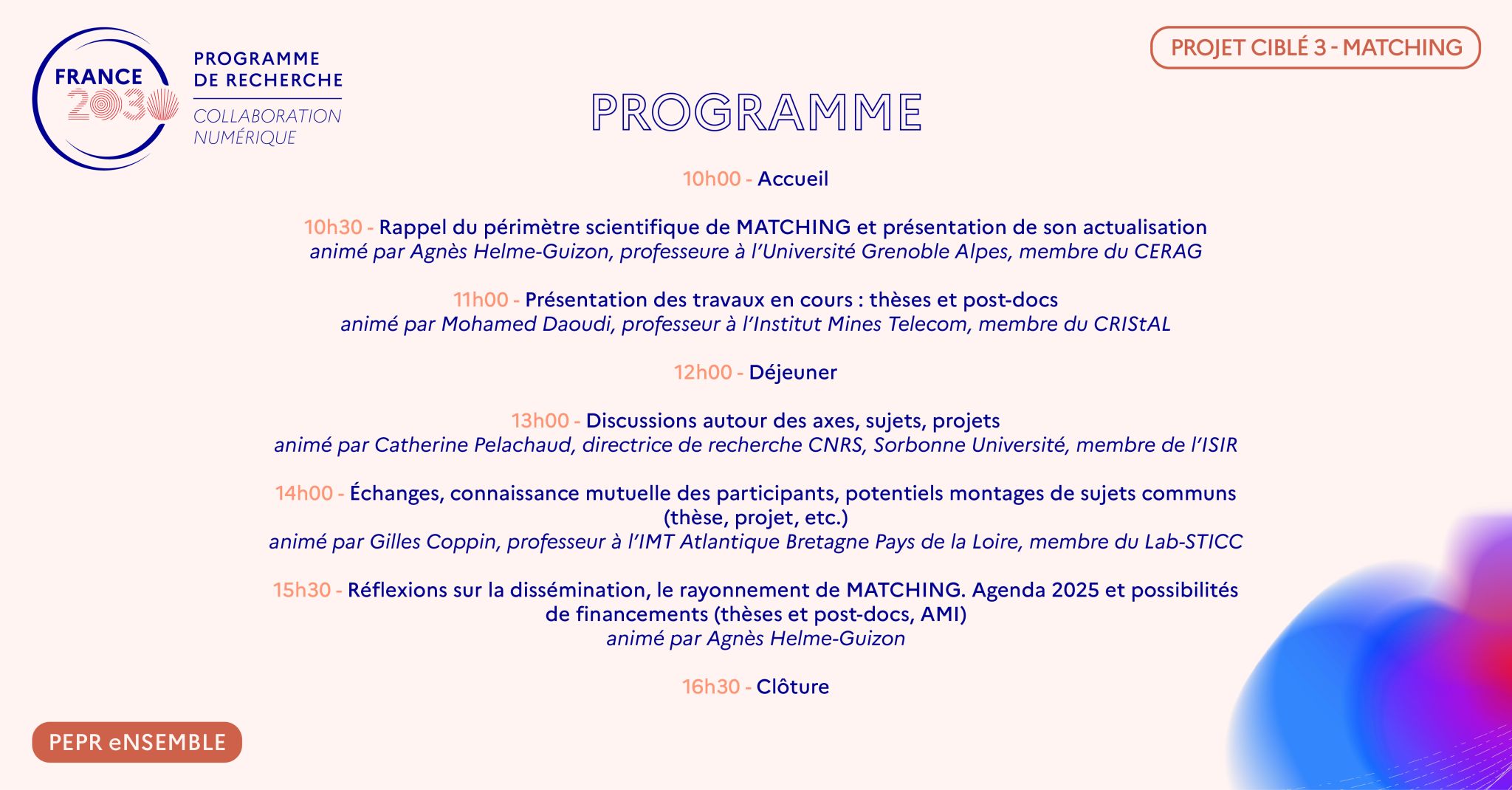
News | 22.08.2024: Following the hacking of the Université Paris-Saclay (co-pilot of the PEPR eNSEMBLE), some of our communication resources and platforms are currently out of service. In particular, all emails sent since 10 August to the addresses ‘@universite-paris-saclay.fr’, ‘@upsaclay.fr’ or ‘@lri.fr’ have not reached us and have been lost. Similarly, the document submission sites (cirrus) and some of the mailing lists are inaccessible.
News | 11.06.2024: The PEPR eNSEMBLE opens a second session of the 2024 call for doctoral theses, with simplified modalities. This call is open to all.

News | 18.03.2024: The ANR Call for Projects (AAP) for the eNSEMBLE PEPR project is open until 2 May.
News | 12.03.2024: The call for PhD program and the priority themes are now announced for the year 2024.
News | 22.01.2024: We are recruiting a Project Manager to specifically handle some Targeted Projects (PCs) of the PEPR (PC2 to PC5). This position will be based in Grenoble (UGA - Université Grenoble Alpes) for an initial period of 3 years (which may be extended, as the projects included in the eNSEMBLE programme are designed to last 7 years). Applications are now open with a target start date of 15 March 2024.
News | 09.01.2024: Call for applications for a Master final internship.
PEPR eNSEMBLE is calling for applications from Master 2 students for 5-month internships with teams participating in the following targeted projects: PC1, PC3 and PC4.
News | 06.12.2023: Call for PEPR eNSEMBLE postdoctoral programmes. We are launching a new call for young PhDs/researchers for postdoctoral contracts with our partner institutions and within one of the 80 teams spread across France.
Recruitment is open on a continuous basis between December 2023 and October 2024, with a selection committee meeting every 2/3 months. Contracts are expected to last between 12 and 24 months, and come with a €6K allowance for equipment and mission expenses. Please do not hesitate to contact the managers of the various Targeted Projects (PC) to discuss your project and your ideas. We also invite you to circulate this call within your laboratories and through your networks!
News | 22.11.2023: Call for Expressions of Interest (AMI) of the PEPR eNSEMBLE - Future of Digital Collaboration. This call - open until 18 January 2024 at 11:00 (CEST) - is launched to:
These different elements will be used to define the scope of the subsequent Calls for Proposals (AAP), designed to select research projects for funding. By way of illustration, the total amount of financial support will be €5 million for each of the calls in 2024 and 2025. The maximum duration of a project will be four years.
More information:
News | 20.10.2023: Kick-Off meeting of PEPR eNSEMBLE: a first day of scientific discussions will be organised in Paris on Friday 17 November 2023. Information & registration to the event.
News | 08.10.2023: The first eNSEMBLE Doctoral School took place after the PEPR inauguration on October 5-6-7.
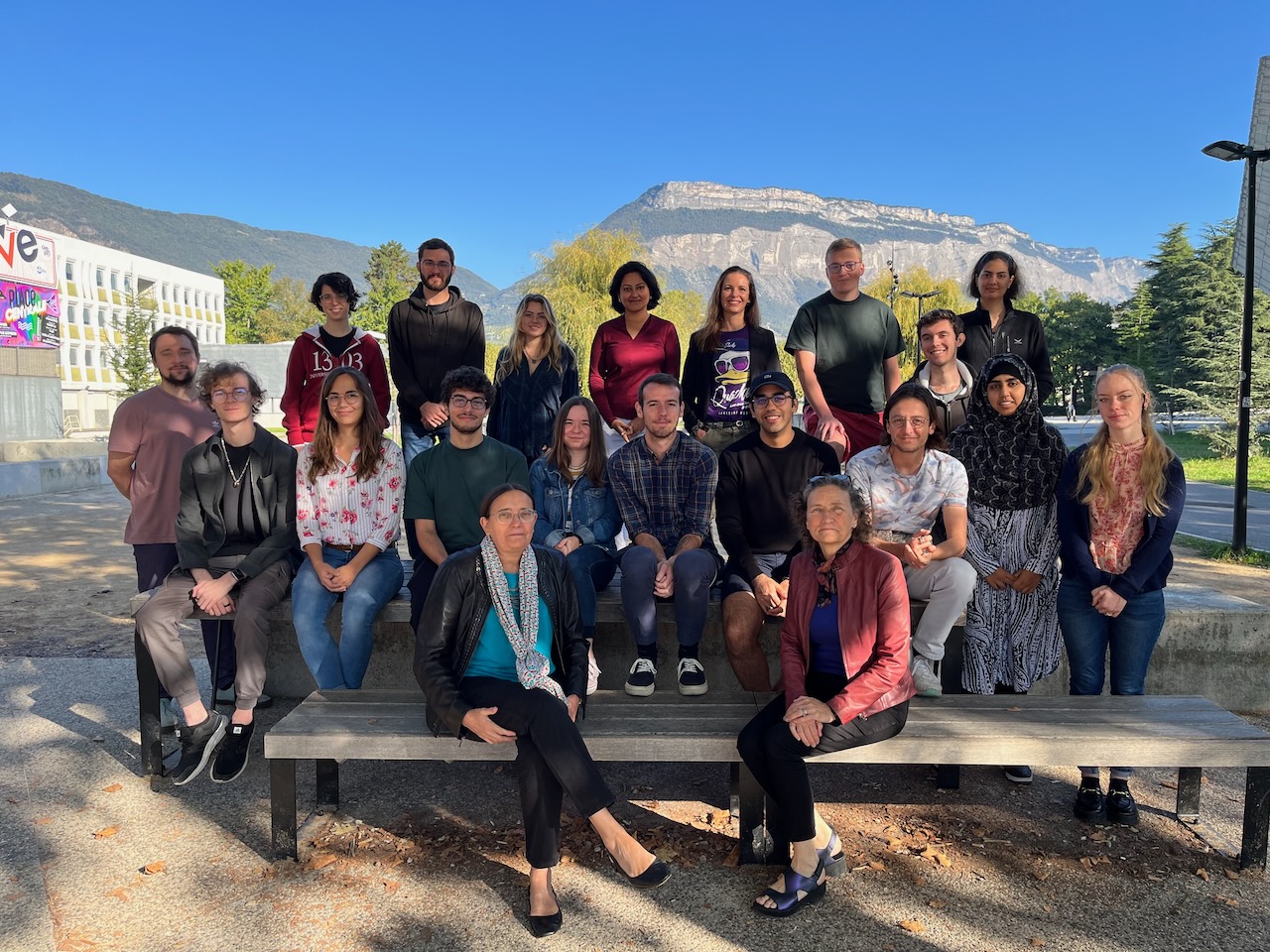
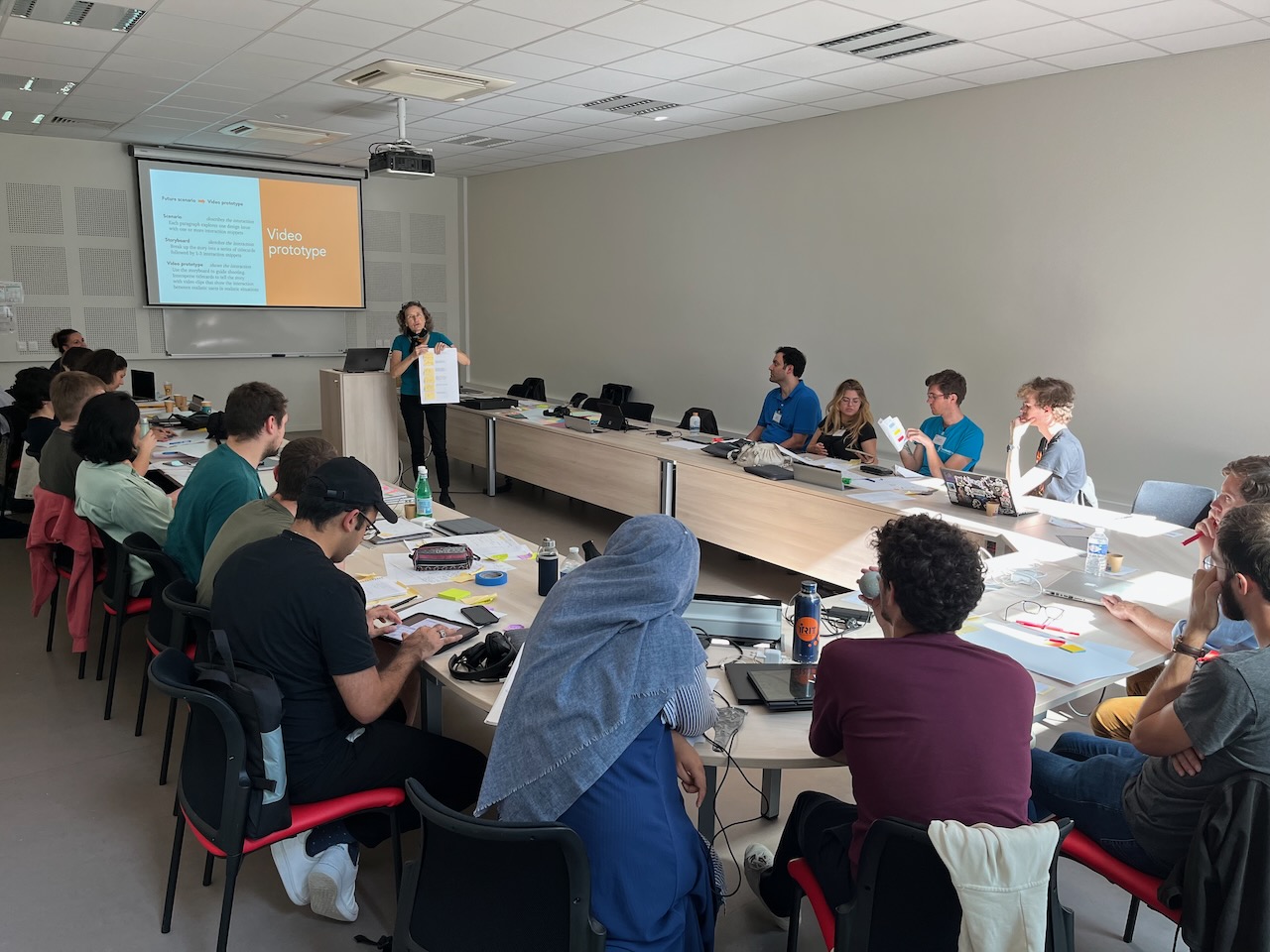
News | 06.10.2023: The inauguration of PEPR eNSEMBLE took place on 5 October 2023 at Université Grenoble Alpes with close to 250 people in attendance. Press release (in French). Replay the event (in French).
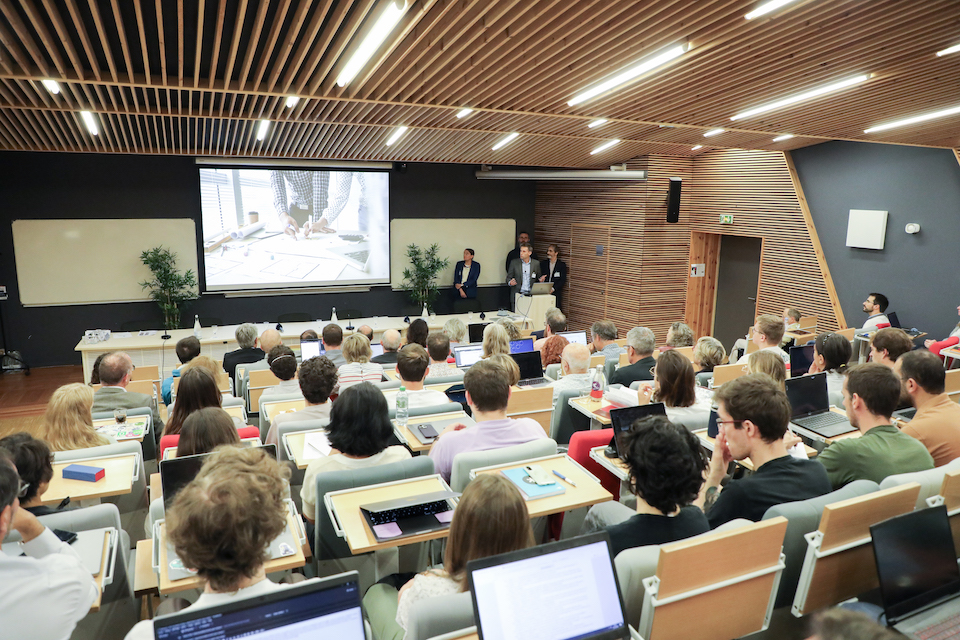
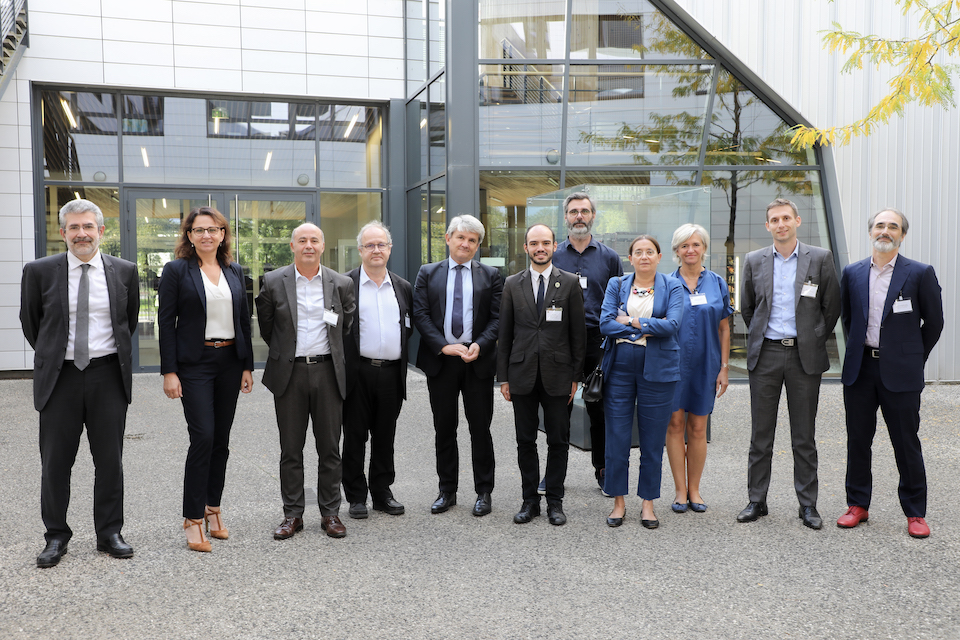
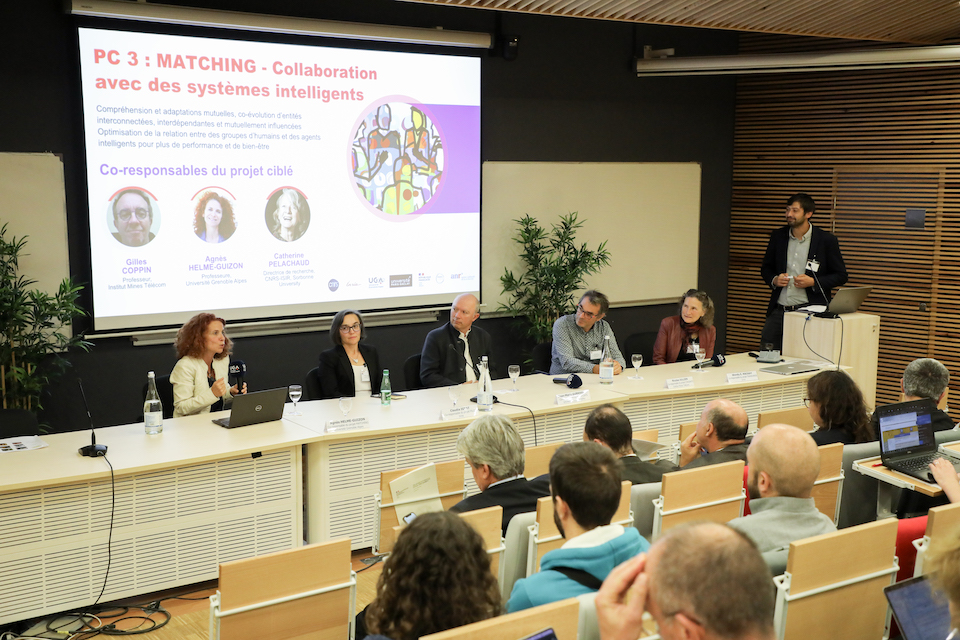
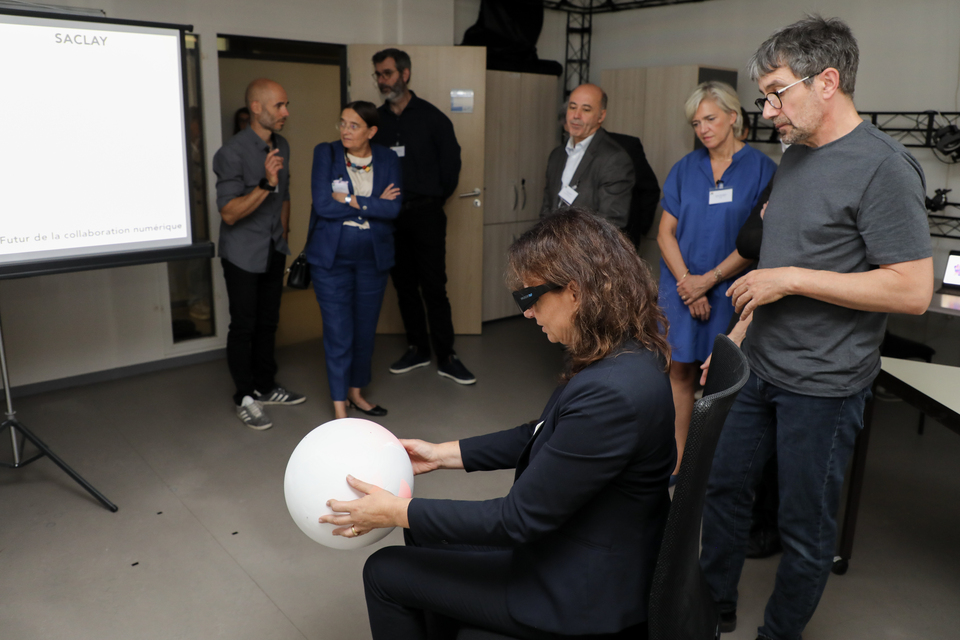
News | 04.09.2023: The inauguration of PEPR eNSEMBLE will take place on 5 October 2023 in Grenoble. Program and registration to attend the event.
News | 04.09.2023: The results of the doctoral program are available.
The purpose of eNSEMBLE (Future of Digital Collaboration) is to fundamentally redefine digital tools for collaboration. Whether it is to reduce our travel, to better mesh the territory and society, or to face the forthcoming problems and transformations of the next decades, the challenges of the 21st century will require us to collaborate at an unprecedented speed and scale.
To address this challenge, a paradigm shift in the design of collaborative systems is needed, comparable to the one that saw the advent of personal computing. To achieve this goal, we need to invent mixed (i.e. physical and digital) collaboration spaces that do not simply replicate the physical world in virtual environments, enabling co-located and/or geographically distributed teams to work together smoothly and efficiently.
Beyond this technological challenge, the eNSEMBLE project also addresses sovereignty and societal challenges: by creating the conditions for interoperability between communication and sharing services in order to open up the "private walled gardens" that currently require all participants to use the same services, we will enable new players to offer solutions adapted to the needs and contexts of use. Users will thus be able to choose combinations of potentially "intelligent" tools and services for defining mixed collaboration spaces that meet their needs without compromising their ability to exchange with the rest of the world. By making these services more accessible to a wider population, we will also help reduce the digital divide.
These challenges require a major long-term investment in multidisciplinary work (Computer Science, Ergonomics, Cognitive Psychology, Sociology, Design, Law, Economics) of both theoretical and empirical nature. The scientific challenges addressed by eNSEMBLE are:
eNSEMBLE will impact many sectors of society - education, health, industry, science, services, public life, leisure - by improving productivity, learning, care and well-being, as well as participatory democracy.
Scenario for a heterogeneous collaboration space with four participants.